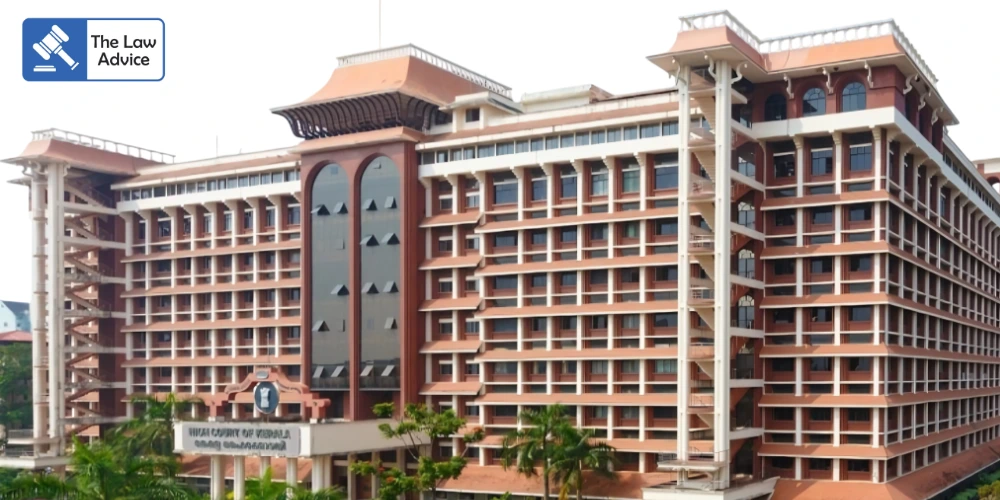Ernakulam, August 20, 2025
The Kerala High Court has held that while a valid sanction from the competent authority is a mandatory prerequisite for prosecuting a public servant under the Prevention of Corruption Act, 1988 (PC Act), an error, omission, or even irregularity in the sanction order will not vitiate a conviction unless it is demonstrated that such a defect has caused a failure of justice.
Justice A. Badharudeen, partly allowing an appeal filed by a former Village Officer, upheld his conviction for accepting a bribe of ₹250 in 2001 but modified the sentence, reducing it to the statutory minimum punishment prescribed under the Act.
The appellant, Luckose Joseph, who served as a Village Officer, was convicted by the trial court under Section 7 and Section 13(2) read with Section 13(1)(d) of the PC Act for demanding and accepting a bribe of ₹250 in return for issuing possession certificates for a property. He challenged his conviction before the High Court, primarily on the ground that the sanction to prosecute him was granted by the Deputy Land Revenue Commissioner—who, according to him, was not the competent authority.
The defense argued that the absence of a proper sanction went to the root of jurisdiction and rendered the conviction invalid.
Arguments Before the High Court
• Appellant’s Counsel:
The appellant relied on the Supreme Court ruling in Nanjappa v. State of Karnataka (2015), which held that the absence of valid sanction is fatal to the prosecution and cannot be cured later. Reference was also made to the Bombay High Court’s ruling in Sudhir v. State of Maharashtra (2025), which had followed the Nanjappa principle.
• Prosecution’s Stand:
The prosecution countered that Section 19(3) of the PC Act clearly stipulates that any error or irregularity in sanction does not automatically nullify a trial or conviction unless it has resulted in a failure of justice. Reliance was placed on State by Police Inspector v. T. Venkatesh Murthy (2004) and CBI v. Jagat Ram (2024 INSC 952), both of which underscored that procedural defects in sanction cannot undo a conviction when evidence proves guilt beyond doubt.
The Court examined Section 19 of the Prevention of Corruption Act, which deals with the necessity and validity of sanction for prosecution of public servants. Justice Badharudeen observed:
“In order to take cognizance for the offences under Sections 7, 10, 11, 13 and 15 of the PC Act alleged to have been committed by a public servant, sanction is necessary. However, during trial, if validity of sanction is questioned on grounds of absence, error, omission or irregularity, including incompetence of the authority granting sanction, no finding, sentence or order of the Special Judge shall be interfered with in appeal, confirmation or revision unless such defect has caused failure of justice.”
The Court noted that in the present case, though the sanction was issued by the Deputy Land Revenue Commissioner instead of the Land Revenue Commissioner, this did not result in prejudice to the accused nor did it impair the fairness of the trial.
“The evaluation of evidence does not indicate that failure of justice occurred merely because a wrong authority issued sanction. Therefore, the conviction cannot be set aside on this ground,” Justice Badharudeen held.
The Court further highlighted that the Explanation to Section 19(4) of the PC Act specifically clarifies that even incompetency of the sanctioning authority is treated as an “error,” and unless such error results in a miscarriage of justice, it cannot vitiate the conviction.
Sentence Reduced to Minimum
While confirming the conviction, the High Court took a lenient view on sentencing. The appellant’s punishment was reduced to the bare minimum prescribed by law:
• For the offence under Section 13(2) read with 13(1)(d) – rigorous imprisonment of one year and a fine of ₹7,500.
• For the offence under Section 7 – rigorous imprisonment of six months and a fine of ₹10,000.
The sentences are to run concurrently.
This ruling clarifies that while sanction remains a jurisdictional requirement, once cognizance has been taken and trial has proceeded, minor defects in sanction do not provide a shield for corrupt officials unless such defects demonstrably cause injustice.
By balancing strict adherence to procedural safeguards with the doctrine of failure of justice, the High Court reaffirmed the Supreme Court’s jurisprudence that corruption trials cannot be allowed to collapse on mere technicalities.
Case Title: Luckose Joseph v. State of Kerala
